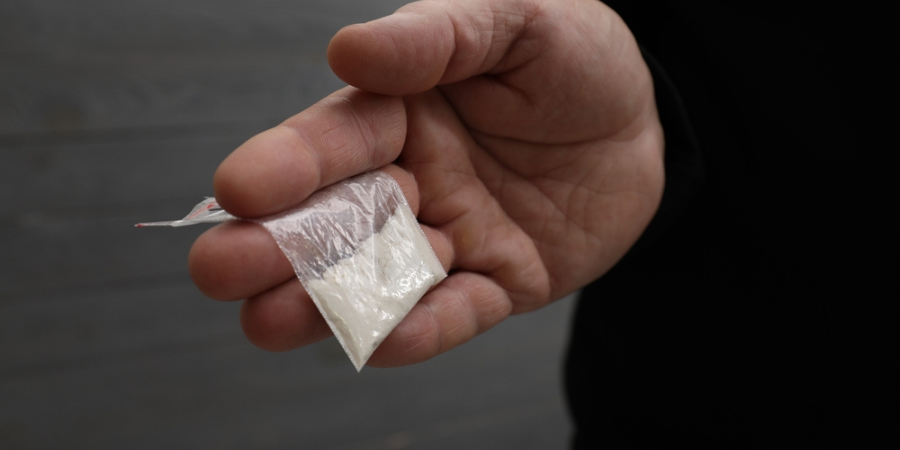Meth Addiction | Signs, Symptoms and Effects
Methamphetamine, also known as ‘meth’, is an extremely powerful and addictive central-nervous stimulant. Its effects have ravaged whole communities in the United States, and while numbers are not as high in the UK, it is still readily available for those who want to find it. Popular TV shows like ‘Breaking Bad’ propelled meth into the spotlight, and as a cheap and fast-acting drug, the number of users continues to rise.
If you are battling with meth, it may not seem like there is a way out, but recovery is possible. Recovery Lighthouse can help you to break free from this awful drug and take back your life.
What is meth?
Meth is illegally manufactured as a white, odourless crystal-like powder that has a bitter taste. It goes by other names including Crystal, Ice, Tina or Crank and is a class A substance – meaning it holds penalties of up to 7 years in prison and/or an unlimited fine for possession.
First synthesised by a Japanese chemist in 1893, meth was used in the medical field to treat narcolepsy, asthma, and as a slimming aid. It was also used in World War II as a method of keeping soldiers awake and alert. Meth was eventually made illegal in the UK in 1964 as its damaging effects became known.
The effects of meth
Meth can be snorted, injected, smoked or taken orally, and results in an initial ‘rush’ of pleasure and excitement. This is caused by the release of neurotransmitters like dopamine which flood the ‘reward’ centre of the brain – and is what makes meth so addictive.
Feelings of alertness, energy and hyperactivity can last for several hours after the initial rush, however, this is also often accompanied by paranoia, aggression and psychosis. As the effects of meth begin to wear off, the comedown or ‘crash’ can be severe.
You may feel:
- Extreme fatigue
- Sleep issues
- Intense cravings for meth
- Nausea
- Body aches
- Inability to concentrate
- Depression and anxiety
- Decreased heart rate
- Paranoia
- Psychosis
These symptoms can prompt you to re-use or abuse other substances (for example, alcohol or opioids) as a way to mitigate the comedown effects. Combining meth (which is a stimulant) with depressants such as alcohol can put a great deal of strain on the body as it tries to cope with the counteracting effects, and this can be deadly. Continually using and mixing substances in this way quickly leads to an addiction and causes a great deal of harm both physically and psychologically.
As your meth addiction intensifies, you may also experience symptoms such as:
- Mood swings and irritability
- Hallucinations
- Confusion
- Decreased cognitive function – you may find yourself unable to make decisions, unable to focus and experience impaired judgement and memory loss
- Increased risk of mental health issues
If you are tired of the same vicious cycles that keep you stuck in a loop of meth abuse, help is available. Don’t waste another day on meth.
Meth addiction timeline
Meth addiction refers to a pattern of behaviour that continues despite the negative consequences. The potency of meth means that this can happen quicker than other substances, in some cases taking only a few weeks for dependency to take hold. Some users even report feeling cravings for the drug after only one use.
It is important to note, however, that cravings alone do not equal addiction. Meth addiction can be classified by four aspects:
- Cravings: an intense hunger for meth
- Compulsion: habitually taking meth
- Consequences: even with the negative impacts, you continue to take meth
- Control: unable to control the amounts or frequency in which meth is taken
The speed of which these four aspects present themselves can vary from person to person and depend on:
- The method used to ingest meth
- Individual physiology and genetics
- Whether any mental health issues are present
- Environmental and social influences
The dangers of meth
In the US, the number of deaths involving meth have risen significantly every year, with 23,837 deaths in 2020 alone. While the UK currently does not have the same figures, meth abuse and addiction is still increasing.
Risk of overdose and death is not the only danger involved when taking meth. Other potential side effects include:
- Permanent damage to internal organs
- High blood pressure
- Irregular heartbeat
- Risk of heart disease and heart attack
- Chest or stomach pains
- Breathing issues
- Seizures
On top of these serious and life-changing consequences, you are likely to experience an inability to feel pleasure or happiness outside of meth use. Taking this drug very quickly takes over every aspect of your life, and it is possible that you’ll need it just to function day-to-day.
Who is at risk of developing meth addiction?
Meth addiction is a serious and dangerous problem that affects people of all ages, genders and socioeconomic classes. Although it has the potential to grasp onto anyone who takes it, there are several risk factors that can increase your probability of becoming addicted to the drug.
These factors include:
- Mental health issues, including depression, bipolar disorder, schizophrenia and others
- Frequent stress or trauma exposure
- Difficulty coping with emotions or life challenges
- Social isolation
- Difficulty forming meaningful connections with others
- A family history of addiction
Social, environmental and genetic factors all play a role in making you more vulnerable to meth addiction. Understanding these risks is key in helping you to make informed decisions about your health and well-being, which may help reduce your chances of succumbing to the perils of meth addiction.
The signs of meth addiction
Spotting a meth addiction can be difficult, especially for those who are not familiar with the signs. In general, the effects of meth addiction manifest in three distinct categories: physical, mental and behavioural changes.
Physically, an individual may experience changes in body weight or skin condition. They may have dental issues, also known as ‘meth mouth’, where teeth begin to decay and even fall out. Personal hygiene may be neglected and they may appear dirty and dishevelled.
Mentally, they may become more aggressive or paranoid, as well as struggle with hysteria and agitation. They may go through periods of desperation at the end of a prolonged period of meth consumption, also known as ‘tweaking’. During an episode like this, the individual will no longer be able to satiate their cravings with more meth as their brain and body will be spent, and psychotic symptoms may appear.
Behaviourally, they may display increased risky behaviours such as violence or reckless driving. They may begin to compulsively lie or steal in order to fund their habit. It is possible that sexually aggressive behaviour may also present itself.
It is important to remember that everyone’s experience with meth addiction is different; however, if you observe any combination of these symptoms in a loved one over an extended period of time, it might be indicative of a larger issue.
Is treatment available for meth addiction?
Treatment for meth addiction is essential for long-term recovery and inpatient rehab, in particular, offers you the best chances of success. This immersive and holistic approach focuses on treating both mental and physical aspects of the addiction. Treatment for meth addiction will include detox, rehabilitation and aftercare.
The initial detox stage refers to the natural expulsion of harmful toxins as you abstain from meth use. At Recovery Lighthouse, you will receive around the clock support for any withdrawal symptoms you face.
Rehabilitation uses therapies to uncover the reasons for your drug abuse, as well as support co-occurring mental health disorders. For example, cognitive behaviour therapy is used to help you recognise troubling behaviour that might lead to relapse.
Recovery Lighthouse also provides 1 year of free aftercare to all of our clients. This is vital to ensure you remain on track once you leave our facility.
Overall, with a well-crafted treatment plan in place, anyone can achieve long-lasting sobriety. If you are ready to put your meth addiction behind you, take that first step and reach out for help.
A life without meth
Breaking free from meth addiction can bring newfound freedom and joy to your life. You’ll experience an increase in energy, improved mental clarity and an overall sense of well-being. You will also benefit from the financial savings that come with sobriety and improved relationships with friends and family.
Many of our clients report feeling liberated and optimistic about the future as they progress through our treatment programme. You too can look forward to a brighter future and reap the benefits of a life without meth. Contact our admissions team if you are ready to make a change and begin your recovery journey.








